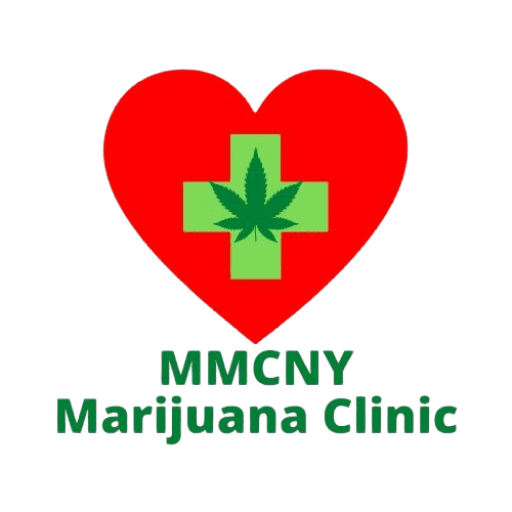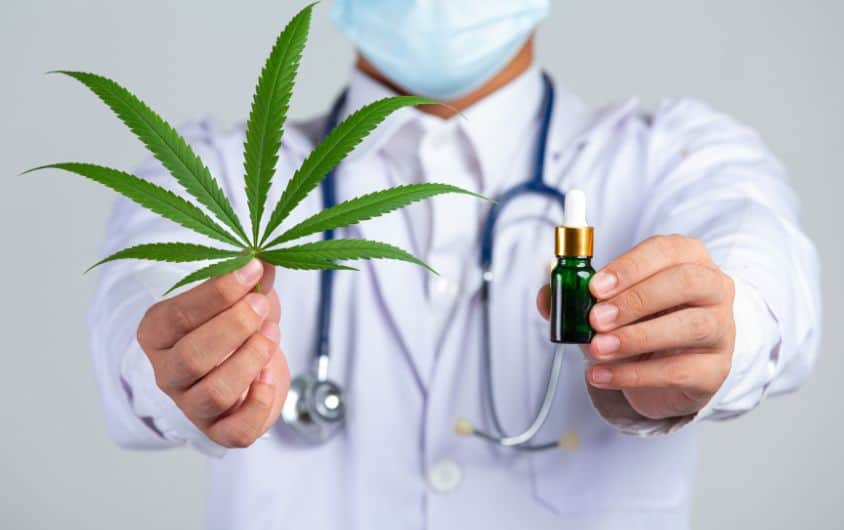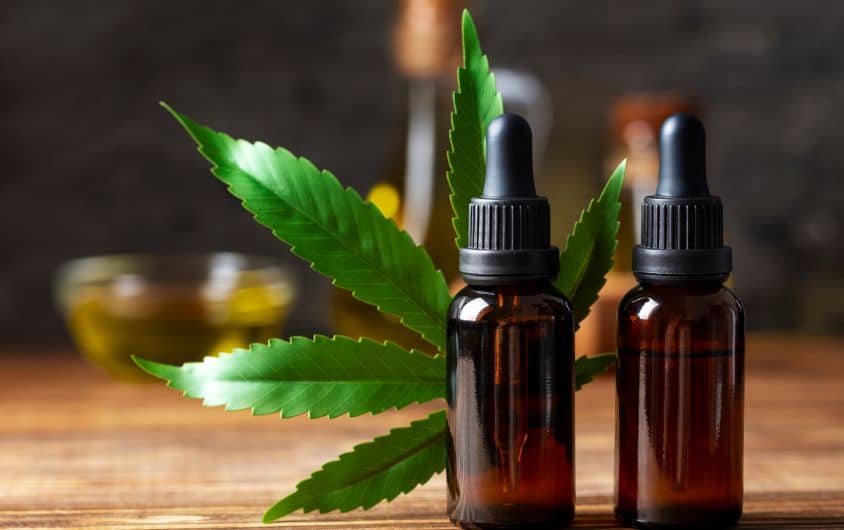Academic research on medical marijuana in New York reveals a nuanced landscape of medical innovation, regulatory challenges, and social equity efforts. New York State has actively pursued a comprehensive regulatory framework to oversee the medical, adult-use, and cannabinoid hemp markets, focusing on public health, safety, and economic development.
The state’s Medical Cannabis Program aims to provide relief for countless New Yorkers, addressing conditions like chronic pain, epilepsy, and cancer. This initiative is supported by rigorous standards for product testing, labeling, and advertising to ensure consumer safety and prevent targeting youth.
Furthermore, New York’s approach emphasizes social justice, establishing equity programs to encourage participation from communities disproportionately impacted by previous prohibition policies.
The regulation and taxation of cannabis not only aim to ensure product safety but also to foster economic growth by supporting small businesses and farmers through various licensing types. With academic research playing a crucial role in shaping policies and recommendations, New York’s stance on medical marijuana serves as a dynamic model for balancing patient care, public health, and economic incentives.
This exploration invites readers to delve deeper into the intricacies of New York’s medical marijuana landscape, highlighting the state’s bold actions towards social justice, public health improvements, and economic development in the regulated cannabis industry.
Table of Contents
Toggle- Introduction to Medical Marijuana in New York
- Overview of Academic Research on Medical Marijuana
- Medical Marijuana in New York: An Academic Perspective
- The Impact of Medical Marijuana Research on Patient Care in New York
- Legal and Ethical Considerations in Medical Marijuana Research
- Medical Marijuana Recommendations: Integrating Academic Insights
- Conclusion
Introduction to Medical Marijuana in New York
What is the Current Status of Medical Marijuana in New York?
New York State has made significant strides in the reform of its medical marijuana program, reflecting a broader shift towards recognizing the therapeutic benefits of cannabis. As of March 2023, New York has simplified access to medical marijuana by removing the requirement for a medical marijuana card.
Instead, patients now need a certification from a qualified doctor to be automatically registered with the state, receiving a registration ID number for the purchase of medical marijuana products. This streamlined process aims to enhance patient access to cannabis for medical use, acknowledging its value in treating a wide range of conditions.
The legalization of recreational marijuana use and possession on March 31, 2021, marked a pivotal moment in New York’s cannabis policy, signaling a progressive stance towards cannabis use and regulation. The state’s approach to medical marijuana, particularly the discretion given to mmj doctors in evaluating and deciding which patients can receive mmj certificates, underscores a commitment to personalized patient care and the professional judgment of healthcare providers.
Why Has New York Considered Medical Marijuana as a Treatment Option?
The consideration of medical marijuana as a treatment option in New York is grounded in an evolving understanding of its benefits, supported by academic research and patient testimonials. Recognizing the therapeutic potential of cannabis, New York aims to provide relief to individuals suffering from chronic pain, epilepsy, cancer, and other debilitating conditions for which traditional treatments may not have been fully effective.
This shift is also part of a broader initiative to encourage social justice, public health, and economic development within the state. By integrating medical marijuana into the healthcare landscape, New York is taking bold steps to ensure that its policies reflect the latest scientific research and social equity considerations.
The state’s regulatory framework for cannabis, including medical use, is designed to ensure product safety, quality, and accessibility, while promoting social and economic equity programs to support communities disproportionately impacted by previous prohibition policies.
Through these efforts, New York is not only addressing the immediate health needs of its residents but also contributing to a more inclusive, equitable, and scientifically informed approach to drug policy and healthcare.
Overview of Academic Research on Medical Marijuana
Academic research on medical marijuana has become increasingly pivotal as both public interest and policy shifts towards acceptance of cannabis for medicinal purposes. This research spans a broad spectrum of focuses, aiming to unravel the complexities of cannabis as a therapeutic agent.
Below, we delve into the primary areas of focus in academic research on medical marijuana and examine how this research contributes to our understanding of its efficacy.
What are the primary areas of focus in academic research on medical marijuana?
- Therapeutic Applications and Safety: Research investigates the potential therapeutic applications and safety of marijuana and its derivatives, such as THC (tetrahydrocannabinol) and CBD (cannabidiol), for various medical conditions and symptoms. This includes chronic pain, epilepsy, multiple sclerosis, nausea, psychological trauma, and more. Researchers are exploring optimal dosages, delivery mechanisms, and potential side effects to provide evidence-based guidance for medical professionals.
- Pre-Clinical and Clinical Trials: The scope of research extends to both pre-clinical models (in vitro studies and rodent models) and clinical trials. These studies aim to explore the efficacy of cannabinoids or cannabis in treating conditions like cancer, pain, anxiety, high blood pressure, and PTSD. Additionally, clinical trials may focus on the benefits and potential harms of medical cannabis use for state-approved medical conditions, including the efficacy of cannabis in reducing reliance on opioids for pain management.
- Health Outcomes and Quality of Life: Some studies specifically assess the impact of medical cannabis on health-related quality of life. Research has shown patients report improvements across various domains after commencing treatment with medical cannabis. Such studies help to quantify the effects of cannabis on functional and social outcomes, providing a broader understanding of its potential benefits.
How does academic research contribute to our understanding of medical marijuana’s efficacy?
Academic research plays a crucial role in demystifying the clinical value of medical marijuana. Through rigorous investigation, researchers are able to:
- Provide Evidence-Based Knowledge: By examining the effects of cannabinoids on a wide range of conditions and symptoms, academic research contributes valuable evidence-based knowledge. This helps guide medical professionals in prescribing cannabis-based treatments and informs healthcare policies and regulations.
- Understand Safety and Therapeutic Potential: Research into the safety and therapeutic potential of cannabis is critical for distinguishing between its benefits and risks. This balance is essential for the development of treatment guidelines and for patient counseling.
- Drive Policy and Clinical Practice: The findings from academic research are instrumental in shaping policies related to medical marijuana. For example, the requirement in Pennsylvania for research to accompany the legalization of cannabis for serious medical conditions positions the state as a leader in defining the drug’s therapeutic applications.
- Improve Patient Outcomes: Studies focusing on health outcomes and quality of life illustrate the tangible benefits that medical cannabis can offer to patients. By documenting improvements in physical and emotional domains, research supports the therapeutic use of cannabis in clinical practice.
Medical Marijuana in New York: An Academic Perspective
What have recent studies revealed about the effectiveness of medical marijuana in New York?
Recent studies and guidelines have significantly contributed to our understanding of the effectiveness of medical marijuana in New York. The New York State Department of Health has developed comprehensive guidelines for the therapeutic use of medical cannabis, detailing the pharmacology, therapeutic uses, and regulatory framework for medical marijuana within the state.
These guidelines provide a framework for clinicians and healthcare providers to implement medical cannabis therapy effectively in outpatient settings, ensuring that patients have access to safe, lab-tested medical cannabis treatment.
Who are the leading researchers or institutions in New York studying medical marijuana, and what have they found?
The Office of Cannabis Management in New York State oversees the Medical Cannabis Program, which has been instrumental in providing relief to countless New Yorkers suffering from various conditions. Since its implementation in 2016, and subsequent amendments through the Marihuana Regulation and Taxation Act (MRTA) in March 2021, the program has expanded access to medical cannabis for patients by increasing the number of qualifying medical conditions, caregivers, and available product categories and dispensing limits. As of February 1, 2024, there are 118,954 registered patients and 4,265 certifying practitioners in the program, showcasing the broad reach and acceptance of medical cannabis as a therapeutic option in New York.
These entities and regulations have laid the foundation for a comprehensive and equitable medical cannabis program in New York State. By facilitating access to medical cannabis and allowing healthcare providers to certify patients for its use, New York has taken significant steps toward integrating medical marijuana into mainstream healthcare for the treatment of conditions like chronic pain, PTSD, cancer, epilepsy, and more.
How can academic research inform New York’s medical marijuana policies and regulations?
Academic research plays a critical role in informing and shaping medical marijuana policies and regulations in New York. By providing evidence-based insights into the efficacy, safety, and therapeutic potential of medical cannabis, researchers can help refine the program to better meet the needs of patients. Ongoing studies and the accumulation of real-world evidence will be crucial for the continuous improvement of the state’s medical marijuana policies, ensuring that they are responsive to the evolving landscape of cannabis research and its implications for public health.
The guidelines from the New York State Department of Health and the efforts of the Office of Cannabis Management exemplify how academic research and evidence-based policymaking can work hand in hand to develop and implement effective medical marijuana programs that prioritize patient safety, access, and therapeutic efficacy.
The Impact of Medical Marijuana Research on Patient Care in New York
Medical Conditions Most Studied in New York Concerning Medical Marijuana Treatment
The most studied medical conditions for medical marijuana treatment in New York include chronic pain, epilepsy, and cancer. These conditions are among the qualifying conditions for medical cannabis certification under the New York State Medical Cannabis Program, which also includes other serious conditions such as HIV infection/AIDS, multiple sclerosis, and Parkinson’s disease. The expansion of qualifying conditions under the Marihuana Regulation and Taxation Act (MRTA) has further broadened the scope for medical cannabis use in treating diverse ailments.
Academic Research Supporting Medical Marijuana Use
Chronic Pain: A landmark study highlighted by the New York State Department of Health demonstrates the potential of medical cannabis to significantly reduce prescription opioid dosages among patients suffering from chronic pain. This study found that patients receiving medical cannabis for 30 days or more could reduce their opioid dosages by up to 51%, indicating a substantial potential for medical cannabis in pain management strategies and in addressing the opioid crisis.
Epilepsy: Cannabidiol (CBD), a key component of medical marijuana, has been FDA-approved for treating seizures associated with specific forms of epilepsy, including Lennox-Gastaut syndrome and Dravet syndrome. This approval is based on substantial clinical evidence demonstrating the efficacy of CBD in reducing the frequency of seizures among affected patients.
Cancer: Medical marijuana has been studied for its potential to alleviate various symptoms associated with cancer treatment, such as nausea and vomiting induced by chemotherapy, as well as chronic pain. Synthetic cannabinoids like dronabinol and nabilone have been approved by the FDA for these purposes, reflecting the therapeutic benefits of cannabis-based treatments in cancer care.
Impact on New York’s Medical Marijuana Policies and Regulations
Academic research plays a crucial role in informing and shaping the medical marijuana policies and regulations in New York. The findings from studies, such as the reduction in opioid dosages with medical cannabis use, provide evidence-based support for integrating medical marijuana into treatment plans for chronic pain and potentially other conditions. This research not only helps in refining the existing medical marijuana program but also aids healthcare providers in making informed decisions about incorporating cannabis into their treatment regimens.
The collaboration between healthcare professionals, researchers, and policymakers ensures that the medical marijuana program in New York remains responsive to the evolving landscape of cannabis research. By continuously updating the list of qualifying conditions and adjusting regulations based on scientific evidence, New York is able to offer a more effective, safe, and accessible medical cannabis program for its residents.
Legal and Ethical Considerations in Medical Marijuana Research
Legal Challenges Facing Medical Marijuana Research in New York
Medical marijuana research in New York, like in other parts of the United States, faces several legal challenges that can impede progress. One of the most significant barriers is the classification of cannabis as a Schedule I substance under federal law.
This classification places strict limitations on research by requiring researchers to navigate a complex web of regulatory approvals, including but not limited to the Drug Enforcement Administration (DEA), Food and Drug Administration (FDA), and institutional review boards.
The DEA’s stringent security requirements for storing cannabis, alongside the bureaucratic hurdles, create substantial obstacles for researchers aiming to study cannabis’s medical benefits.
Moreover, the National Institute on Drug Abuse (NIDA) is the sole source for federally legal cannabis used in research. This monopoly limits the variety and potency of cannabis strains available for study, potentially skewing research outcomes and not accurately reflecting the products consumers use in state-regulated markets.
The cannabis supplied by NIDA often does not match the potency or variety of products available in dispensaries, which can affect the external validity of research findings.
Ethical Considerations in Medical Marijuana Research
Ethical considerations in medical marijuana research primarily revolve around ensuring the rights and welfare of participants are protected. Researchers must obtain approval from institutional review boards, which assess whether studies are designed to minimize risks to participants. This is particularly important in studies involving vulnerable populations or when investigating conditions with significant stigma attached, such as substance use disorders.
Moreover, the ethical landscape includes considerations about the equity and accessibility of medical marijuana. Researchers and policymakers must address disparities in access to medical cannabis, often exacerbated by socioeconomic factors, to ensure that all patients who could benefit from medical marijuana have the opportunity to do so. This includes making the cost of medical cannabis accessible for all patients, not just those who can afford it.
The Office of Cannabis Management in New York has taken steps to facilitate medical marijuana research by creating a Cannabis Research License. This license aims to simplify the process for researchers to study cannabis and its effects, signifying a move towards overcoming legal and ethical challenges in cannabis research.
By establishing a framework that encourages studies into cannabis’s chemical composition, agricultural production, consumer use, and potential therapeutic benefits, New York State positions itself as a leader in cannabis science and research.
Addressing both legal challenges and ethical considerations is essential for advancing medical marijuana research in New York. By streamlining regulatory processes and focusing on ethical research conduct, New York can contribute valuable knowledge to the understanding of cannabis’s medical applications, ultimately benefiting patients and the broader medical community.
Medical Marijuana Recommendations: Integrating Academic Insights
How Academic Research Can Improve the Process of Providing Medical Marijuana Recommendations in New York
Academic research can significantly enhance the process of providing medical marijuana recommendations in New York by offering a robust evidence base on cannabis’s therapeutic and adverse effects. Such research can inform healthcare providers about the efficacy, safety, and optimal use of medical cannabis across various conditions and patient demographics.
By studying the pharmacokinetics, pharmacodynamics, and dose-response relationships of cannabis, researchers can provide clinicians with critical insights into how different forms of cannabis and cannabinoids affect health outcomes. This knowledge can lead to more precise and personalized medical marijuana recommendations, ensuring patients receive the most effective and safe treatment options.
Challenges Healthcare Providers Face When Making Medical Marijuana Recommendations
Healthcare providers encounter several challenges when making medical marijuana recommendations based on current research. One major hurdle is the limited availability of high-quality, comprehensive studies on the health effects of cannabis, particularly regarding long-term use, specific medical conditions, and various cannabis products like edibles, concentrates, and topicals.
Furthermore, the regulatory barriers posed by cannabis’s Schedule I classification impede access to necessary resources for conducting thorough research.
This classification restricts the variety and potency of cannabis available for study, making it difficult for healthcare providers to base their recommendations on solid, conclusive evidence. Additionally, the lack of standardized terminology and guidelines for cannabis research further complicates the ability of healthcare providers to rely on existing studies for making informed recommendations.
Conclusion
Academic research on medical marijuana in New York reveals a nuanced landscape where the potential therapeutic benefits are increasingly recognized alongside an acknowledgment of the need for more comprehensive studies. The legal and regulatory hurdles, primarily due to cannabis’s classification as a Schedule I substance, have historically limited research scope and access to diverse cannabis strains for study.
Nonetheless, recent efforts within the state to promote research through initiatives like the Cannabis Research License show a commitment to overcoming these barriers. Studies have started to inform healthcare providers about the effective and safe use of cannabis for conditions such as chronic pain, epilepsy, and cancer, among others.
However, the research also underscores significant gaps in our understanding, particularly regarding long-term effects, optimal dosages, and the impact on various populations. The call for a national cannabis research agenda, with support from public and private sectors, highlights the urgency of addressing these knowledge gaps to guide healthcare decisions and policy-making effectively.
Resources
https://www.pcom.edu/research/research-areas/medical-cannabis.html
https://jamanetwork.com/journals/jamanetworkopen/fullarticle/2804653
https://research.med.psu.edu/medical-marijuana/
https://www.ncbi.nlm.nih.gov/books/NBK577724/
https://cannabis.ny.gov/medical-cannabis
https://www.health.ny.gov/press/releases/2023/2023-01-31_jamma.htm
https://www.ncbi.nlm.nih.gov/books/NBK425757/
https://cannabis.ny.gov/research





